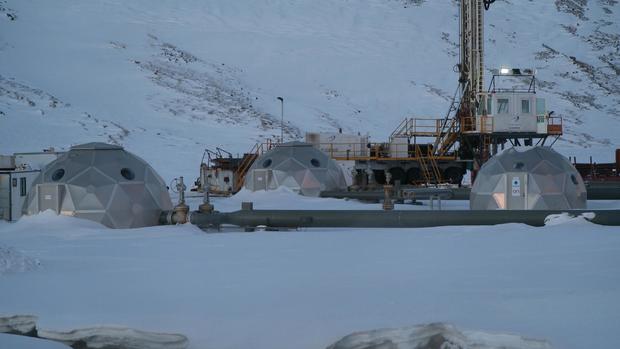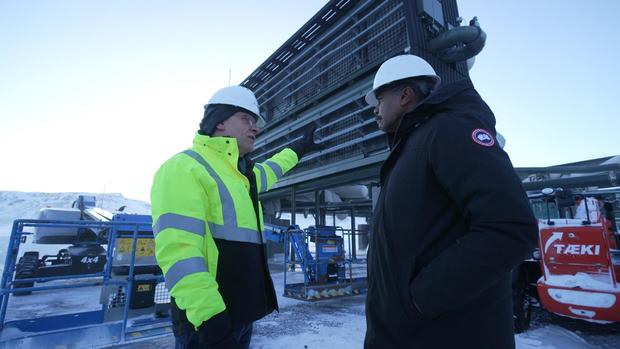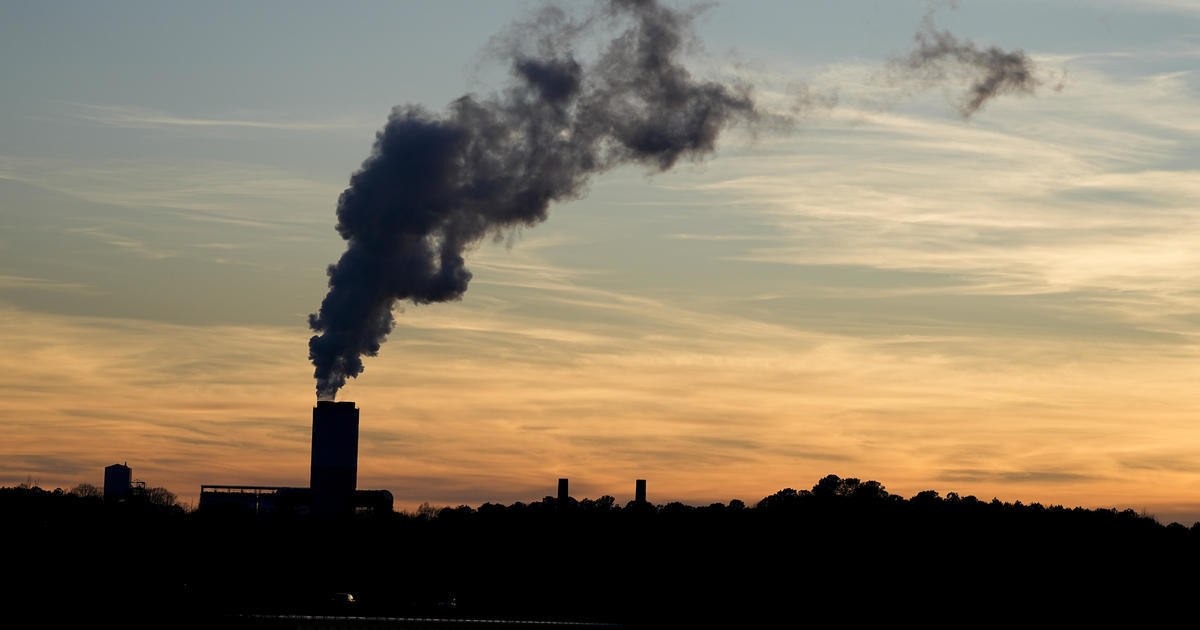Carbon capture technology "can never be an excuse" for business as usual, advocates say
There's been a stampede of investment into direct air capture, but some advocates worry the carbon capture process may not be scaled up fast enough to make an impact.
Direct air capture is a new technology that vacuums carbon dioxide out of the atmosphere. The CO2 is trapped by a special filter inside a giant collector – each the size of a shipping container. In Iceland, home to the world's first commercial direct air capture plant, CO2 is then sent to be buried deep underground in porous volcanic rock, where it hardens to stone in less than two years.
Scientists estimate carbon capture needs to remove 10 billion tons of carbon dioxide annually, at the same time as there are drastic cuts in fossil fuels. ORCA, which CBS news correspondent Bill Whitaker visited in Iceland, can take out the emissions of about 800 cars, or 4,000 tons of CO2. Scaling direct air capture is a gargantuan challenge.
Carolos Haertel is the chief technology officer at Climeworks, the Swiss company that built ORCA. He told Whitaker that technically the scaling up process can be done, but that it's not a decision that one company can make alone.
"Whether we are taking the right direction will depend as much on societal things than on technical matters," Haertel said. "Am I optimistic as an engineer? I am, absolutely. Am I optimistic as a citizen? Maybe half-half. I haven't made my mind up yet."
The International Panel on Climate Change, which works with the top climate scientists in the world, has endorsed direct air capture as part of a suite of new technologies that can reduce oil and gas emissions.
Nearly 40 billion tons of oil and gas emissions are spewing into the atmosphere every year, according to the National Oceanic and Atmospheric Administration (NOAA.) It's primarily emitted from the transportation, construction and power industries. The heat-trapping effects of carbon dioxide make it by far the most damaging greenhouse gas and contributor to climate change, NOAA said in a 2022 report.
As it exists now, direct air capture is expensive and energy intensive. In Iceland, where ORCA is located, that energy is geo-thermal— renewable and green. That's not the case elsewhere. Governments in Europe and the United States have dangled billions of dollars of subsidies and tax incentives to encourage companies to take the plunge.
Occidental Petroleum has staked out the lead in the direct air capture business in the U.S. It has set aside more than $1 billion to build what will be the world's largest direct air capture plant, CEO Vicki Hollub said. Oil companies have been capturing and injecting CO2 for decades, not to bury the CO2, but to flush out more oil. It's called enhanced oil recovery and it has many in the carbon capture industry wary that this technology will give oil companies cover to pump more oil.
Kari Helgason of Carbfix, which is the Icelandic company that pioneered the method to inject captured carbon into the ground, told 60 Minutes that carbon capture can never be an excuse for doing business as usual. Many others in the field agree.
"We must stop the emissions and wean ourselves off of fossil fuels. That's what we need to do right now," Helgason said. "On top of that, we also must take down the carbon that we've already put up in the atmosphere. Only then will we reach our climate goals. So, carbon capture can never be an excuse for continuing business as usual."
But Hollub argues that using carbon dioxide sucked out of the air to flush out more oil means the oil produced will be what she calls carbon neutral.
"The oil that we'll create with the CO2 injected will emit less carbon than the CO2 we've injected to get it," she said. "So we've put more—at least the equivalent—and sometimes more CO2 in the ground to get that oil than the oil will emit when used."
Producing oil this way is essential in the transition to a green economy, she said. Airlines and ships, for example, need to run on fossil fuels until a sustainable alternative is found. That could take years. Until then, Hollub argues that using CO2 to get that oil helps keep a lid on emissions.
Hollub knows critics of big oil are suspicious and that many feel the industry isn't moving fast enough to avoid a climate catastrophe. On that point, she doesn't disagree. Hollub said Occidental Petroleum plans to build 130 more direct air capture plants by 2035 around the globe.
"We're gonna walk the talk. That's the only way that does it. Words will never convince anybody," the CEO said. "We need to get the direct air capture up and working. And we need to make it better, make it more economical and start having it developed all around the world."
Meanwhile in Iceland, Carbfix is working around the clock to build a massive underground disposal site for CO2, capable of handling 3 million tons a year. It's the first industrial-scale waste disposal site for CO2. Helgason sketched out a new world where tankers—running on green methanol— would transport carbon dioxide from European businesses to Iceland.
Still, Helgason admits he doesn't know if it will happen fast enough to help with climate change.
"To be perfectly honest, we are demonstrating the first mineral storage hub here at a megaton scale," Helgason said. "Whether that will happen in time, that is not entirely up to us. That is up to politicians, governance, financiers, societies."
Climeworks is now building a new plant in Iceland 10 times the size of ORCA. Both Carbfix and Climeworks will be expanding to the U.S. Neither plans to work with the oil industry.
"Our product is removing carbon from the atmosphere. It's fundamentally a contribution [to] safeguarding the future. That's what it truly is," Haertel said. "And that needs to receive the value and the attention that it deserves given the climate emergency that we are in."






